Vauxhall Combo Cargo vs Toyota Proace City - Differences and prices compared
Compare performance (136 HP vs 136 HP), boot space and price (22400 £ vs 20800 £ ) at a glance. Find out which car is the better choice for you – Vauxhall Combo Cargo or Toyota Proace City?
Costs and Efficiency:
Price and efficiency are often the first things buyers look at. Here it becomes clear which model has the long-term edge – whether at the pump, the plug, or in purchase price.
Toyota Proace City has a hardly perceptible advantage in terms of price – it starts at 20800 £ , while the Vauxhall Combo Cargo costs 22400 £ . That’s a price difference of around 1642 £.
Fuel consumption also shows a difference: Vauxhall Combo Cargo manages with 5.20 L and is therefore slight more efficient than the Toyota Proace City with 5.30 L. The difference is about 0.10 L per 100 km.
In terms of energy consumption, the advantage goes to the Vauxhall Combo Cargo: with 17.40 kWh per 100 km, it’s slight more efficient than the Toyota Proace City with 18.10 kWh. That’s a difference of about 0.70 kWh.
As for electric range, the Vauxhall Combo Cargo performs barely noticeable better – achieving up to 354 km, about 11 km more than the Toyota Proace City.
Engine and Performance:
Power, torque and acceleration say a lot about how a car feels on the road. This is where you see which model delivers more driving dynamics.
Both models deliver identical power – 136 HP each.
In acceleration from 0 to 100 km/h, the Vauxhall Combo Cargo is barely noticeable quicker – completing the sprint in 11.20 s, while the Toyota Proace City takes 11.50 s. That’s about 0.30 s faster.
In terms of top speed, the Toyota Proace City performs minimal better – reaching 186 km/h, while the Vauxhall Combo Cargo tops out at 183 km/h. The difference is around 3 km/h.
Both models offer the same torque – 300 Nm.
Space and Everyday Use:
Whether family car or daily driver – which one offers more room, flexibility and comfort?
Seats: Toyota Proace City offers somewhat more seating capacity – 7 vs 6.
In curb weight, Vauxhall Combo Cargo is hardly perceptible lighter – 1329 kg compared to 1366 kg. The difference is around 37 kg.
In maximum load capacity, the Vauxhall Combo Cargo performs clearly perceptible better – up to 3900 L, which is about 1207 L more than the Toyota Proace City.
When it comes to payload, Vauxhall Combo Cargo to a small extent takes the win – 991 kg compared to 869 kg. That’s a difference of about 122 kg.
Who wins the race in the data check?
The Vauxhall Combo Cargo shows small but noticeable advantages in the objective data comparison.
This result only shows which model scores more points on paper – not which of the two cars feels right for you.
Costs and Consumption
View detailed analysis
Engine and Performance
View detailed analysis
Dimensions and Body
View detailed analysis

Vauxhall Combo Cargo
Vauxhall Combo Cargo
The Opel Combo Cargo is a pragmatic workhorse that pairs sensible practicality with surprisingly car-like manners, making it a smart choice for small businesses and weekend DIYers. With clever storage, easy access and a calm cabin that keeps the focus on the job, it turns daily deliveries and errands into something almost enjoyable.
detailsToyota Proace City
The Toyota Proace City is a clever compact workhorse that blends van practicality with passenger comfort, turning daily deliveries or weekend DIY runs into a surprisingly civilised affair. It won't set your pulse racing, but its easy driving manners, flexible interior and low-hassle ownership make it a smart pick for buyers who value usefulness over flash.
details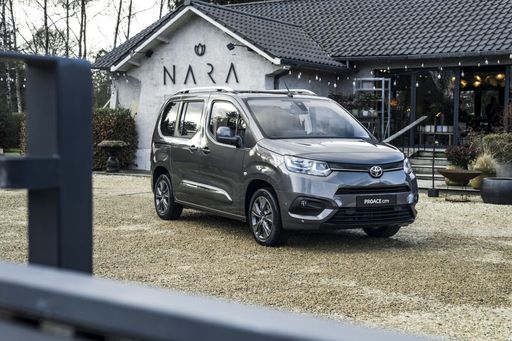
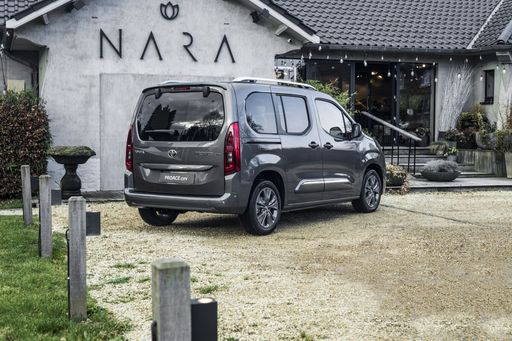
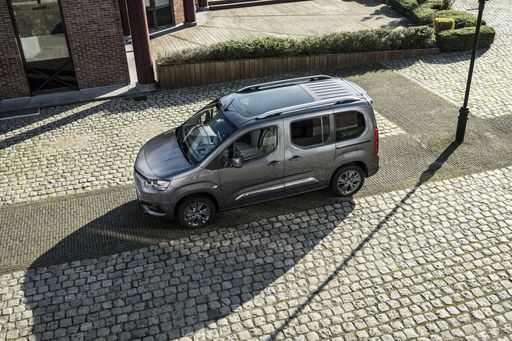
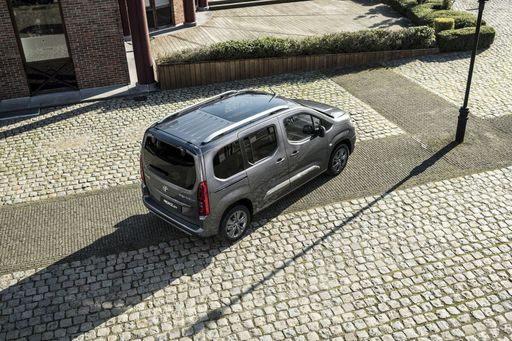
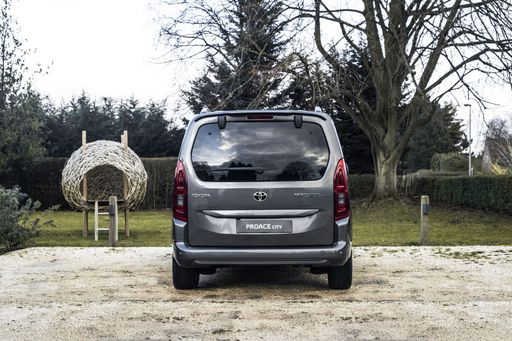
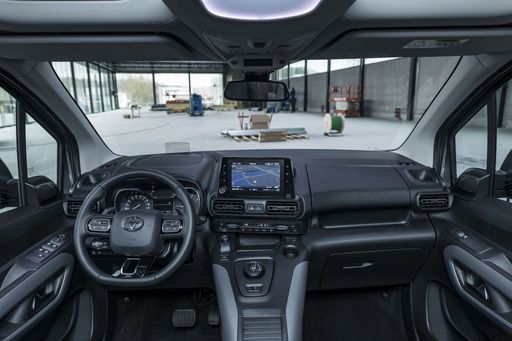
Costs and Consumption |
|
|---|---|
|
Price
22400 - 34800 £
|
Price
20800 - 44100 £
|
|
Consumption L/100km
5.2 - 6.3 L
|
Consumption L/100km
5.3 - 6.3 L
|
|
Consumption kWh/100km
17.40 kWh
|
Consumption kWh/100km
18.10 kWh
|
|
Electric Range
354 km
|
Electric Range
343 km
|
|
Battery Capacity
-
|
Battery Capacity
-
|
|
co2
0 - 143 g/km
|
co2
0 - 146 g/km
|
|
Fuel tank capacity
53 - 61 L
|
Fuel tank capacity
50 - 61 L
|
Dimensions and Body |
|
|---|---|
|
Body Type
Cargo Van
|
Body Type
High Roof Estate
|
|
Seats
2 - 6
|
Seats
5 - 7
|
|
Doors
4 - 5
|
Doors
4 - 5
|
|
Curb weight
1329 - 1813 kg
|
Curb weight
1366 - 1664 kg
|
|
Trunk capacity
-
|
Trunk capacity
322 - 912 L
|
|
Length
4401 - 4751 mm
|
Length
4401 - 4751 mm
|
|
Width
1848 mm
|
Width
1848 mm
|
|
Height
1820 - 1825 mm
|
Height
1812 - 1818 mm
|
|
Max trunk capacity
3300 - 3900 L
|
Max trunk capacity
2126 - 2693 L
|
|
Payload
611 - 991 kg
|
Payload
525 - 869 kg
|
Engine and Performance |
|
|---|---|
|
Engine Type
Diesel, Petrol, Electric
|
Engine Type
Petrol, Diesel, Electric
|
|
Transmission
Manuel, Automatic
|
Transmission
Manuel, Automatic
|
|
Transmission Detail
Manual Gearbox, Automatic Gearbox, Reduction Gearbox
|
Transmission Detail
Manual Gearbox, Reduction Gearbox, Automatic Gearbox
|
|
Drive Type
Front-Wheel Drive
|
Drive Type
Front-Wheel Drive
|
|
Power HP
102 - 136 HP
|
Power HP
102 - 136 HP
|
|
Acceleration 0-100km/h
11.20 s
|
Acceleration 0-100km/h
11.5 - 13.2 s
|
|
Max Speed
135 - 183 km/h
|
Max Speed
135 - 186 km/h
|
|
Torque
205 - 300 Nm
|
Torque
205 - 300 Nm
|
|
Number of Cylinders
3 - 4
|
Number of Cylinders
3 - 4
|
|
Power kW
75 - 100 kW
|
Power kW
75 - 100 kW
|
|
Engine capacity
1199 - 1499 cm3
|
Engine capacity
1199 - 1499 cm3
|
General |
|
|---|---|
|
Model Year
2024 - 2026
|
Model Year
2024 - 2025
|
|
CO2 Efficiency Class
E, A
|
CO2 Efficiency Class
E, A
|
|
Brand
Vauxhall
|
Brand
Toyota
|
What drivetrain options does the Vauxhall Combo Cargo have?
The Vauxhall Combo Cargo is offered with Front-Wheel Drive.
